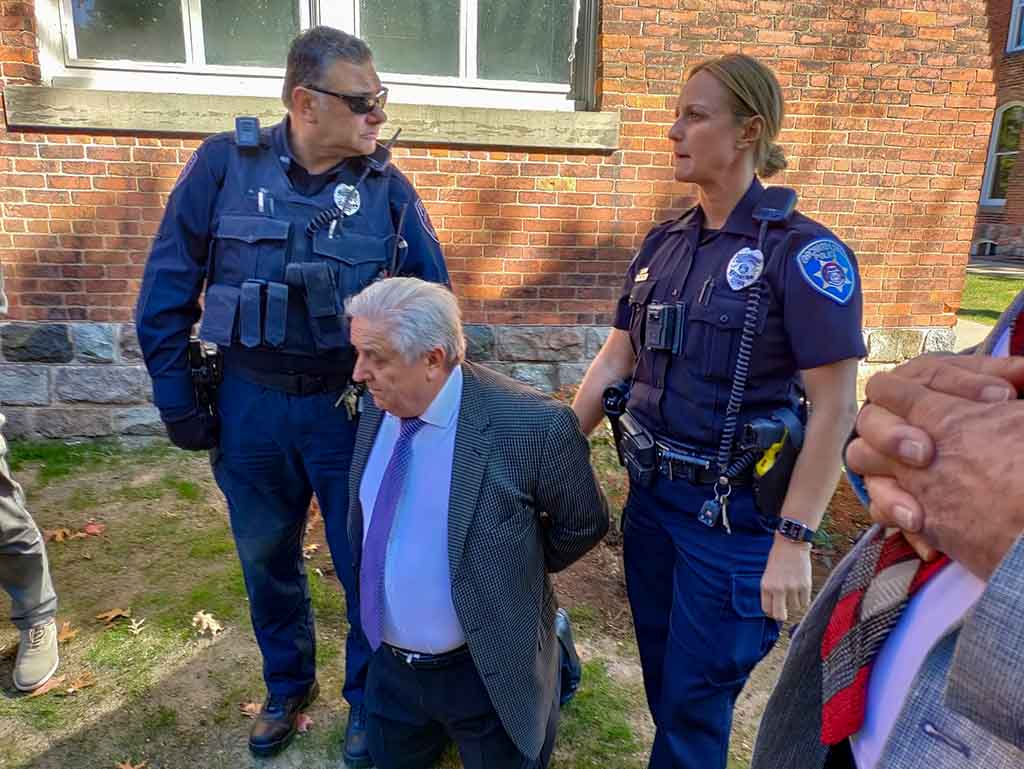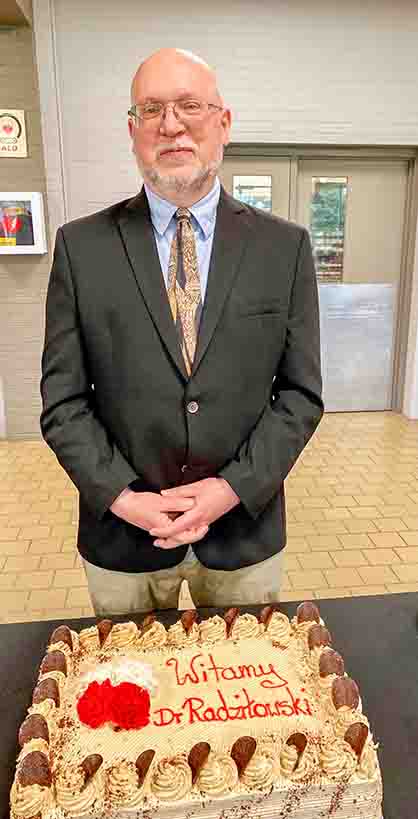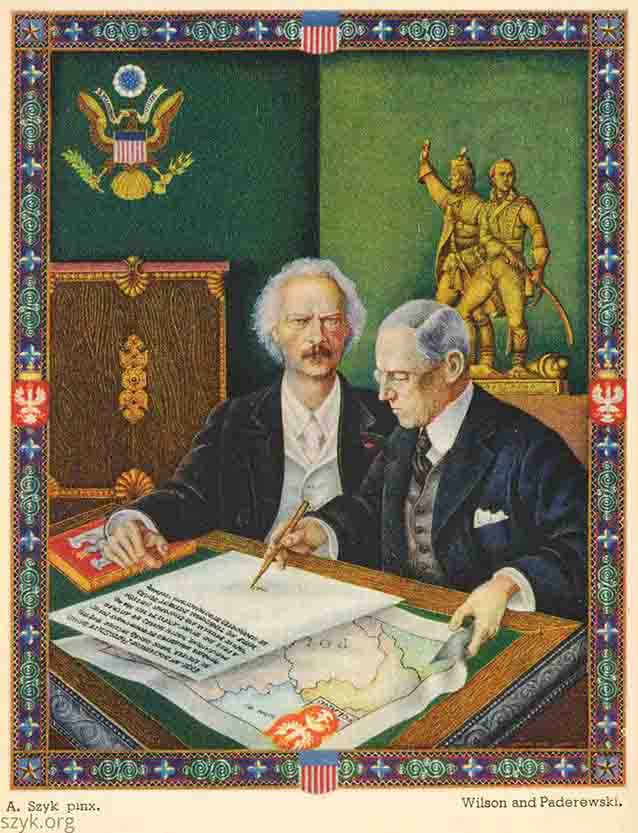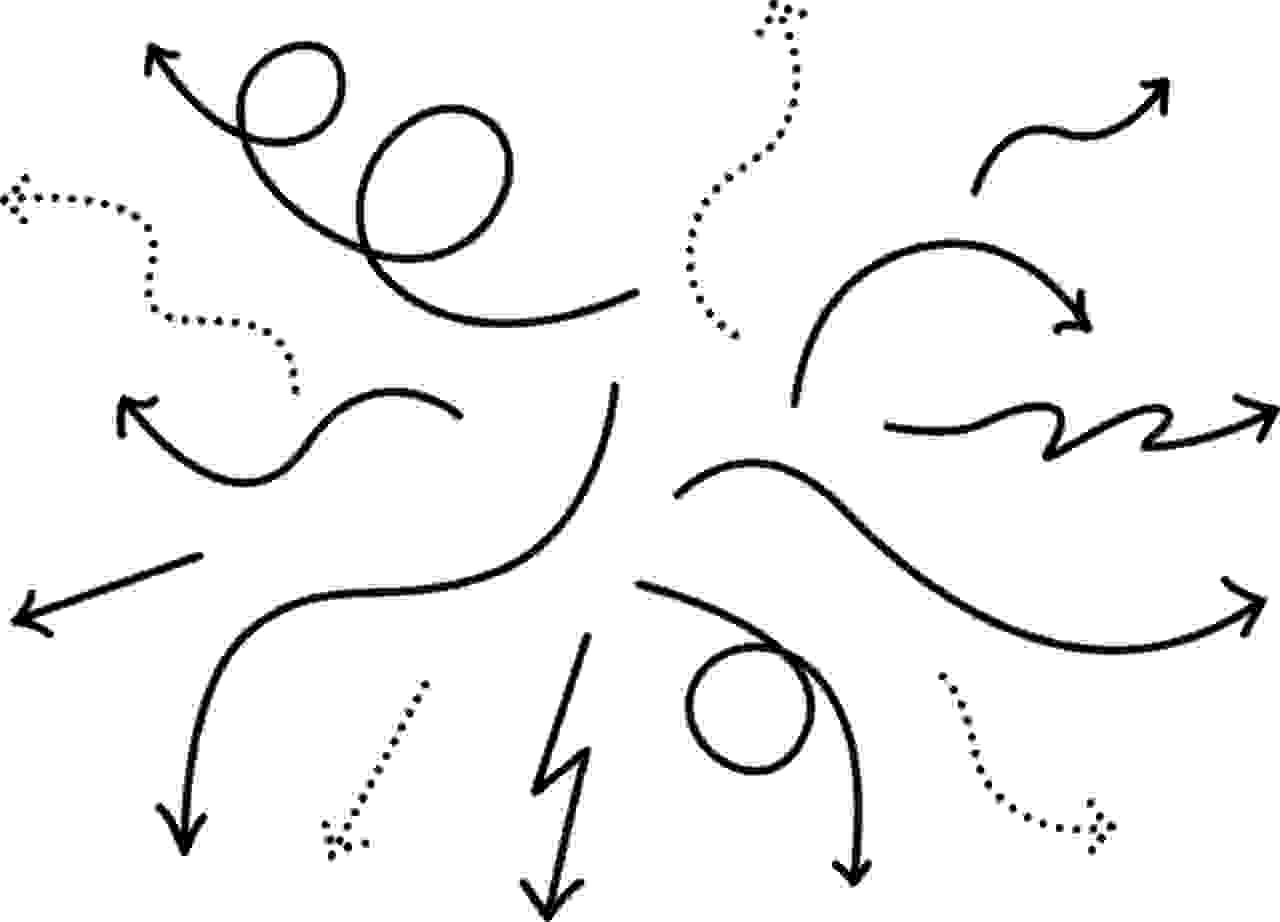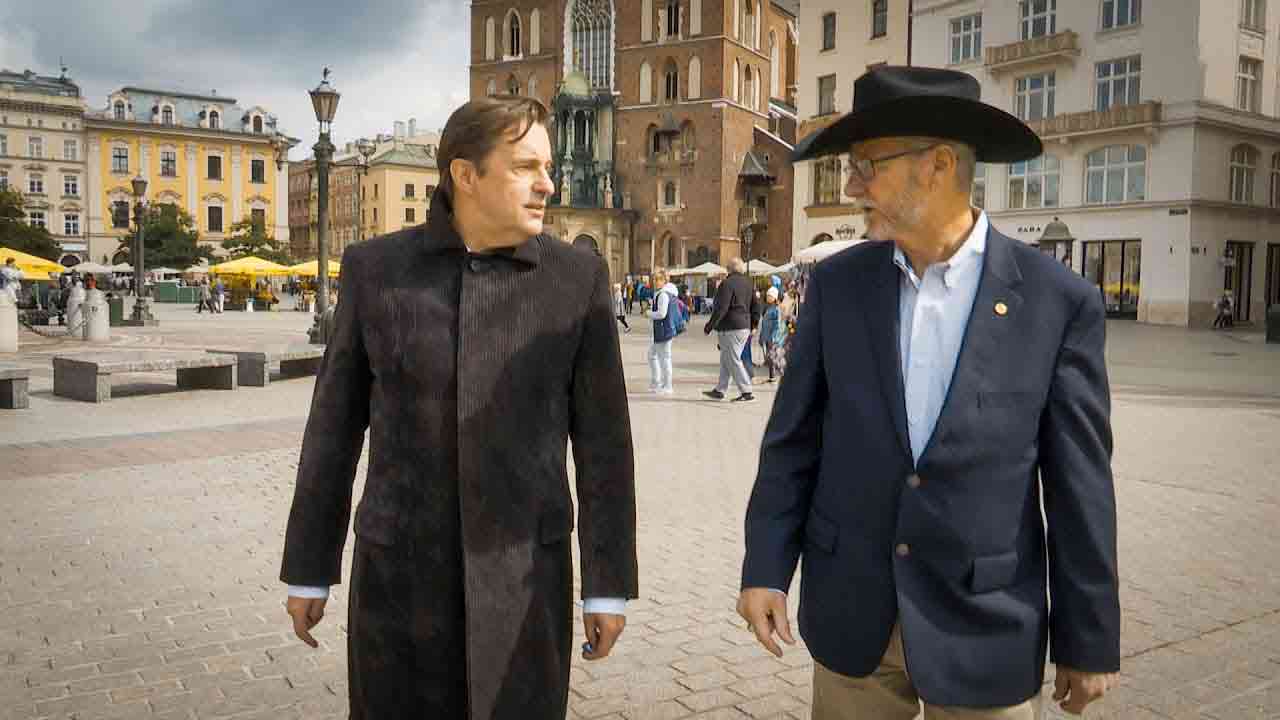The condition of the American Polish diaspora as the largest group of the Polish diaspora should be evaluated by an objective examination of a scientific institution. This analysis should include the current state of affairs and the condition of the Polish diaspora in the United States, as well as an attempt to set the course of action in order to prevent the progressive assimilation of the Polish diaspora in the USA. A report on this should be drawn up by experts from both sides of the political spectrum. This article is an attempt to open a solid debate on the American Polish diaspora as the largest group of the Polish diaspora.

Source: Pixabay
Political Background
The Polish diaspora in America has never before experienced such a crisis as at present. The presidential election in the United States polarized the Polish diaspora thoroughly.
During the campaign, attempts were made to engage on both sides of the political spectrum, but Trump's staff did not take seriously the efforts of the Polonia group on his side this time. Biden himself spoke about the Polish diaspora in an interview in the New York Times, saying: We stopped showing up at the Polish American club. We stopped showing up, and we all went to you, the really smart people. [1]
Let me remind you that during the Clinton-Trump presidential campaign, the latter met in Chicago with a group of activists from the local Polish community, and the Clinton staff refused to meet. The Polish community, however, was unable to take advantage of the winning streak during Trump's tenure. No American of Polish descent who has any contacts with the Polish diaspora has been nominated for the ever-changing Trump administration. In conclusion: Donald Trump did not give much to the Polish diaspora during his term in office. It brought benefits to Poland, but not to the Polish diaspora. Later, a pandemic has added to the political situation, which has resulted in a final stop to any activities.
The last action of the American Polonia was the performance of a spectacular lobbying campaign for Poland's accession to NATO since 1994. Prof. Donald Pienkos wrote about it on the pages of Kuryer Polski. [2] President Edward Moskal then collected 9 million signatures of American citizens and sealed Poland's accession to NATO. In December 2002, President Moskal spoke about Poland's accession to the European Union, but this was to be his last political act. He said the following:
The agreement negotiated in Copenhagen does not adequately protect Polish interests and violates the basic principles of the European Union on the equality of rights and obligations of all states. We believe that accession involves a far-reaching loss of political sovereignty. Polish parliamentarism and the judiciary are under threat. The laws and resolutions of the Sejm and Senate will be deprived of the Polish national point of view. After joining the Union, the Poles will become a nation without a state of their own.
This statement sparked a wave of hatred in Poland. The then elite quickly discredited the leader of the Polish diaspora and the relations with the Polish diaspora were cooled. As early as 1989, the so-called Round-Table Agreement assumed political ostracization of the Polish diaspora, as expressed by the Prime Minister of the Republic of Poland Mazowiecki during his visit to London. When asked why he did not meet the President of the Republic of Poland in Exile, Ryszard Kaczorowski, he replied that "it would be humiliating towards President Jaruzelski."
Thus, since 1989, [Polish] governments have not established political cooperation with the Polish diaspora, despite the fact that, at that time, it had active structures and still had an influence on American politics. Hopes for such cooperation arose after 2015, but the Polish community abroad has long been systematically extinguished. At that time, the Polish community demanded that Warsaw conduct a vetting of former SB (Security Service) agents in the structures of the Polish community. However, no one knew that most of them were recruited after 1989 and continued to destabilize all Polish political actions. We all remember the attempt to extradite a suspect in the case of the murder of the Polish police chief. The US Department of Justice, however, strongly refused to hand over the suspected perpetrator to the Polish Minister of Justice.
The flagship projects of the Polish diaspora, once built on traditional values, began to be "modernized". After Poland joined the European Union, research programs on the Polish diaspora in the USA were discontinued in order to finance other research by European Union funds.
In the United States itself, as part of the new wave of political correctness, leaders with highly conservative roots were sacked. These, in turn, tried to build new conservative projects that never reached a professional level. Also, it has never been possible to build a solid counterbalance to the projects that were taken over, albeit of a liberal nature. The polarization of the Polish diaspora is progressing, and the State Department is discreetly watching the collapse of the Polish diaspora, once a major driving force and influence on American politics.
Since Poland's accession to the European Union, we can see that the interest in the Polish diaspora by the Polish government has significantly decreased. Research on the Polish diaspora has been drastically abandoned, and the knowledge of it is so insufficient that the Polish political class has heard little about us. The knowledge of the average Pole from the Vistula River about the Polish diaspora is negative and still negatively stimulated by silly films and superficial programs by the entire army of people in Poland who "deal with the Polish diaspora". As a liberal diplomat from Krakow explained to me, the vectors of foreign policy changed after 2004 from interest in diasporas to being replaced by multicultural issues.
Types of Polish Community Activists
Whoever tries to build any non-party projects is immediately hailed as a "Russian agent". This is also congruent with the will of most old leaders, who do not see the need to open up to the younger generation. Among the conservative activists, the "conspiracy theory of history" and the search for Russian agents wherever possible, as well as the simple tripping up of younger, more ambitious activists, which leads them to become discouraged and to cease their activities, still dominate.
"All-Knowing, Immortal and Unsinkable" is the most common category of activists. They have held their positions since time immemorial. Usually their knowledge does not include modern technology or laws of marketing. They have no vision for the future. They just go on. They love to be photographed with Polish VIPs and are eager for their promises. One can easily conclude that they are the ones who hammered the last nail into the coffin of the Polish community. They don't have to do anything. All they need to know is when and where to appear and with whom to take a picture of themselves. It is thanks to them that projects such as the Orchard Lake center collapse. For decades, supervisory boards composed of such activists "supervise" the great wealth of the Polish community abroad, and there are also those who are just waiting for a favorable opportunity to sell some real estate "under the table" and get rich.
"Cunning foxes" is the most insidious category. These, in turn, hold important, responsible positions, but their priorities do not oscillate around what is good for the Polish diaspora and for Poland, but around a simple rule: what's in it for me and what political hay can I make from it?
The rest is the largest group that is totally lost and is looking for any leader, so as to have a sense of belonging to some Polish group and a sense of fulfillment in acting for the Motherland. The model of this type of activists must be changed as soon as possible, because it has an impact on the progressive assimilation of the Polish diaspora.
Old Polonia versus Poles from Around the Vistula River.
To explain the term "Old Polonia", it is Americans of Polish origin who have lost the ability to use the Polish language, for whom the level of acculturation, i.e. functioning in both cultures, is very limited. They believe that they do not need Polish for anything and that everyone who performs any function or position should speak without an accent in English. They are the opponents of the bilingualism — the condition of the survival of Polish identity abroad.
It happens that the heads of Polish centers are people who do not speak Polish or know little about Poland, or who have never dealt with Poland. They often identify Polish culture with Polka — a dance with elements of Czech or German folk tradition — or with Polish dishes such as "kishka", and they proudly emphasize that they are 45%, 80% and even 100% Polish, which in turns raises the question among the Poles from around the Vistula River: "And we? Who are we?"
Many Americans of Polish descent treat Poles from Poland, regardless of their education, as inferiors - exactly like their simple, uneducated grandfathers, who landed on Ellis Island, the place where Polish emigrants physically arrived. None of them would even realize that all the flagship projects of the Polish diaspora in the USA were created by Polish emigrants who most often spoke English with a strong Polish accent. They were the most culture-forming in the Polish diaspora. However, in order to convey knowledge about the Polish identity of the Polish diaspora in Argentina, Australia, Russia and European countries, English is not the dominant language of communication - that language is still Polish, and requires well understood bilingualism, depending on the country of residence of a given group of the Polish diaspora.
Divisions in the Polish Diaspora
So, the Polish diaspora in America is deeply divided. The most important division are along the lines of political views of the liberal-democrats versus the conservative-republicans. It is difficult to use numbers here, but these will soon become available from the Piast Institute, which is preparing a special report based on the research of the Census 2020.
Each Polish community center has its own organizational structures. Their activity is often dominated by their leader. His knowledge and ability to conduct any politics reflect the activity of the organization. Usually, these organizations do not cooperate with each other, which results from the lack of cooperation skills in Polish environments. Liberal circles love to mingle with each other and pay each other compliments. Conservative circles, in turn, continue to conspire, expelling and ostracizing those suspected of being a "Russian agent". Both groups are unable to cooperate and ignore each other. Despite quite a good education in both groups, aside from some exceptions, the leaders show lack of knowledge of the organizational principles of running these structures, of cooperation with the media, and of the importance of electronic media. A separate issue is the knowledge about the Polish diaspora itself, its achievements and successes, especially in the political realm.
The Vision of the Polish Diaspora and Its Priorities
Most of the Polish structures are momentum-driven. There is no clear vision and program for what will happen with the respective organization and with the Polish diaspora in 10 years. Young people are not recruited for fear of the changes that would occur, and there is nothing in these organizations' programs to attract the young into them. The policy of endurance turns into a slow assimilation of the Polish diaspora.
A similar situation prevails in Canada and other strategically important countries for Poland, such as Germany, France, Great Britain, and the Benelux countries. Each leader has his own priorities which are remotely controlled, more or less discreetly, by individual political factions, often of the same party in Poland. The biggest problem, however, is the lack of national leadership and no idea how to train new leaders. It is from this level that any initiative and political will for further action should come. Since 2005, unfortunately, the importance of the Polish diaspora in the USA has been diminishing.
Conclusions
- Research of the Polish Diaspora. It is the duty of the Polish state to restore research of the Polish diaspora, the aim of which should be to objectively learn about the condition and needs of the group. We cannot get to know the Polish diaspora through the relationship with one's brother-in-law from Chicago, which is actually the case with a high-ranking politician.
- Pro-Polish lobbying. The lack of political cooperation between Warsaw and the Polish diaspora is a still-unresolved issue. Faced with the current pressure on Poland from the United States, Germany, the European Union, Israel, and Russia, we are all alone. It would be important to create professional pro-Polish lobbying in countries strategic for Poland, invest in the collapsing Polish media. The network of Polish media abroad and strategically connected organizations in countries important to Poland is an essential step that nobody talks about.
- The political program of the American Polonia. The Polish diaspora itself should, above all, create a sensible political program that would allow it to influence American domestic and foreign policy. For any significant changes to occur in the world of the Polish diaspora, a profound generational change is also needed. It's time for organic work again — training leaders and future politicians of Polish origin. The American Polish diaspora must re-introduce their representatives to the US House of Representatives and Senate. It must have governors, state officials, city presidents, and other prominent figures in US government agencies. Anyway, if you look closely, American Poles work at lower levels of the American administration, but to get promoted, they don't have any political springboard that could promote them.
- Investment in Polish media abroad. Once one has media in every strategically important country for Poland, one should invest in them, create a network that can promote the Polish raison d'etat in a cross-party manner. This requires bold political decisions and it is time to do so. The condition for such an idea is to create a bilingual model so that citizens in the country where the medium is located have the opportunity to obtain information about Poland, its economy, science, culture and history in both languages. Examples of such bilingual media are: "British Poles" from London and the new "Kuryer Polski" from Milwaukee.
- Improve the operational agency. It is necessary to establish a Polish institution - a think-tank, say a "Paderewski Institute", to create Polish diaspora policy and train staff for the Polish diaspora. This process should also ensure a profound generational progression. This can only be done on the basis of cross-party cooperation between both liberal and conservative Polish diaspora groups. There is no other way. Let us set up, like the Hungarians here in the US, a government institution that would support the building of a pro-Polish lobby. Let's hire the best professionals from the USA, Canada and Poland. Let it be the "Polska Team", a team of professionals who speak and write in English and Polish, who would be able to build such an integrated network of Polish media and organizations. By making this investment, we could restore the former importance of pro-Polish lobbying in the US for decades.
Translated from Polish by Andrew Woźniewicz.





